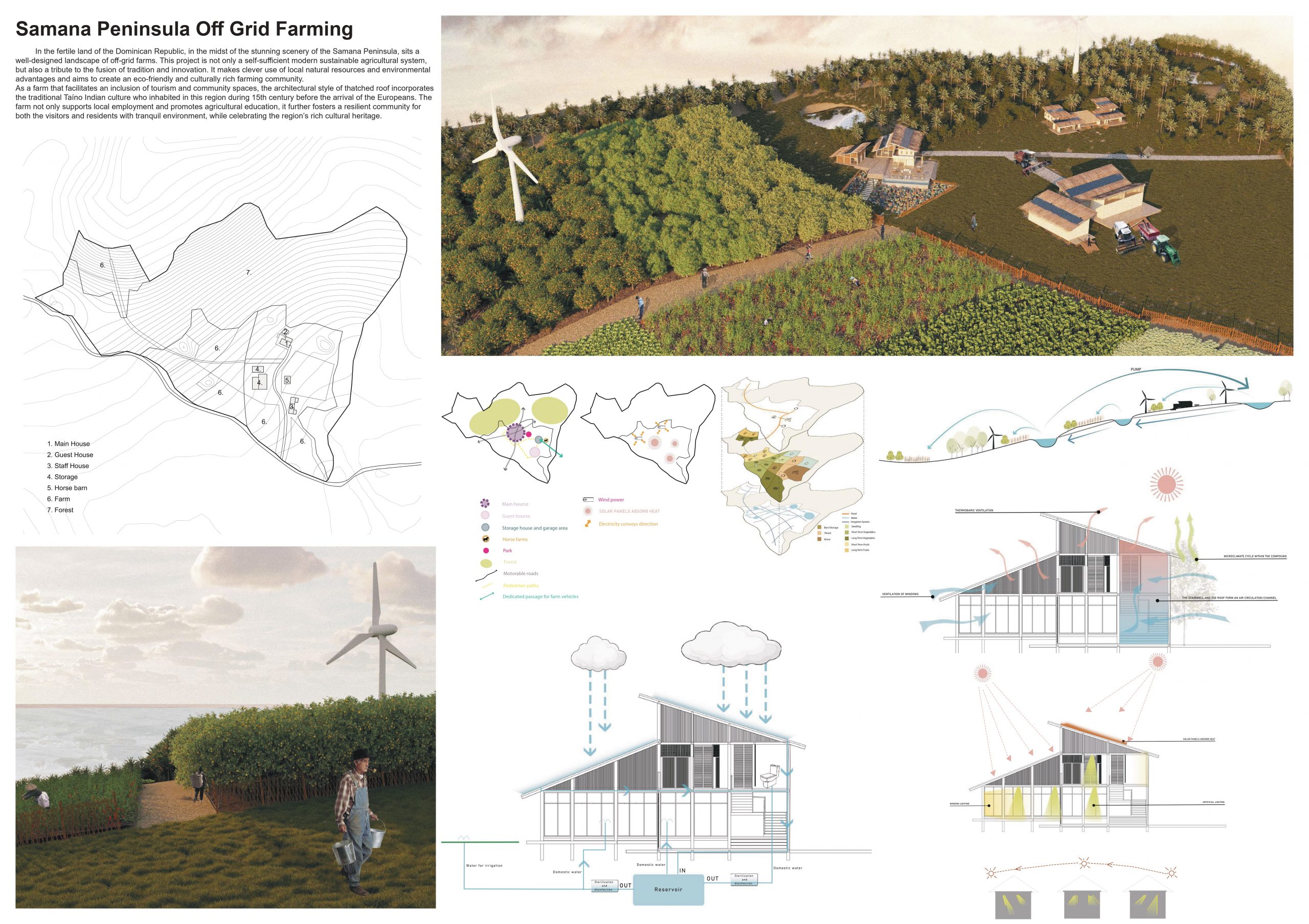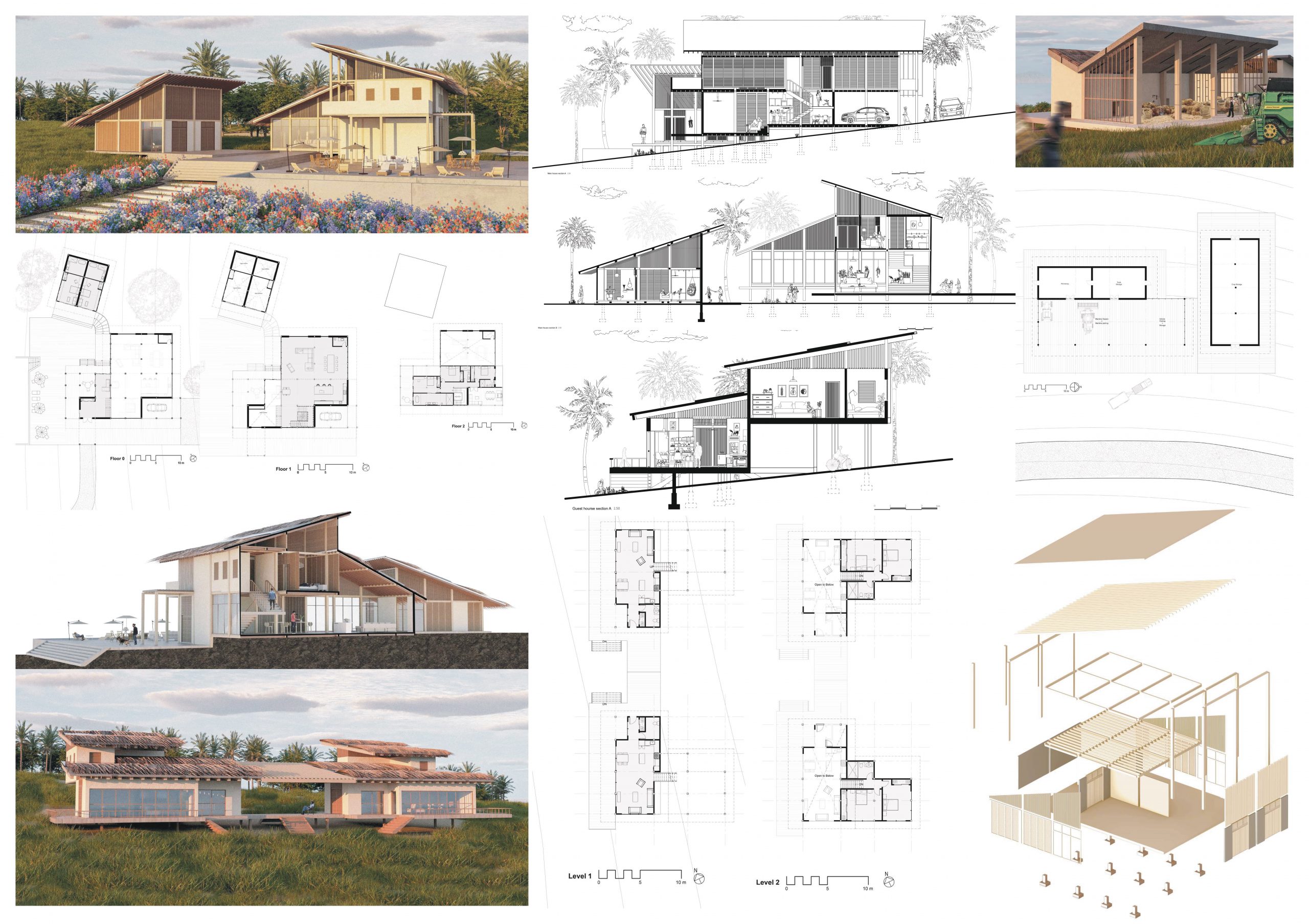
Off Grid Farm
In the fertile land of Dominican Republic, the off-grid farm landscape design nestled in the scenic of Samaná Peninsula as a self-sufficient modern sustainable agricultural system.
The architecture shelters, including the main house, guest house, staff house and the barn are elevated with the support of columns to minimize the environmental impact on the sloped hill near the south end. They integrate local wood to compose the major tectonic structures as well as screening patterns on the doors and ventilation panels. Coral stones are employed partially for the façades that ensure privacy and visual appeal. The roofs are designed as single pitch, slanted cane leaves thatched roof equipped with solar panels to harness sufficient solar energy. Combined with strategically placed wind turbines that capture consistent coastal winds of the peninsula, electricity is generated throughout the dual approach to support farm operations and residential needs.
The Samaná Peninsula enjoys a subtropical climate with distinct wet and dry seasons. During the significant rainfall season from May to November, it necessitates an efficient water management system. Our design includes a rainwater harvesting system that collects rainwater from the top of the hill and channels several ponds along the slope to the bottom of the hill, providing sufficient irrigation and reliable daily water supply throughout the year.
The farm cultivates a variety of vegetables including cabbage, carrots, peppers, tomatoes, and sweet potato. Fruit trees such as lemon, mango, orange, and banana are planted to enhance biodiversity and productivity. Under the abundant sunshine and fertile soil, it creates an auspicious environment for harvest year-round.
As a farm that facilitates an inclusion of tourism and community spaces, the architectural style of thatched roof incorporates the traditional Taíno Indian culture who inhabited in this region during 15th century before the arrival of the Europeans. The farm not only supports local employment and promotes agricultural education, it further fosters a resilient community for both the visitors and residents with tranquil environment, while celebrating the region’s rich cultural heritage.


